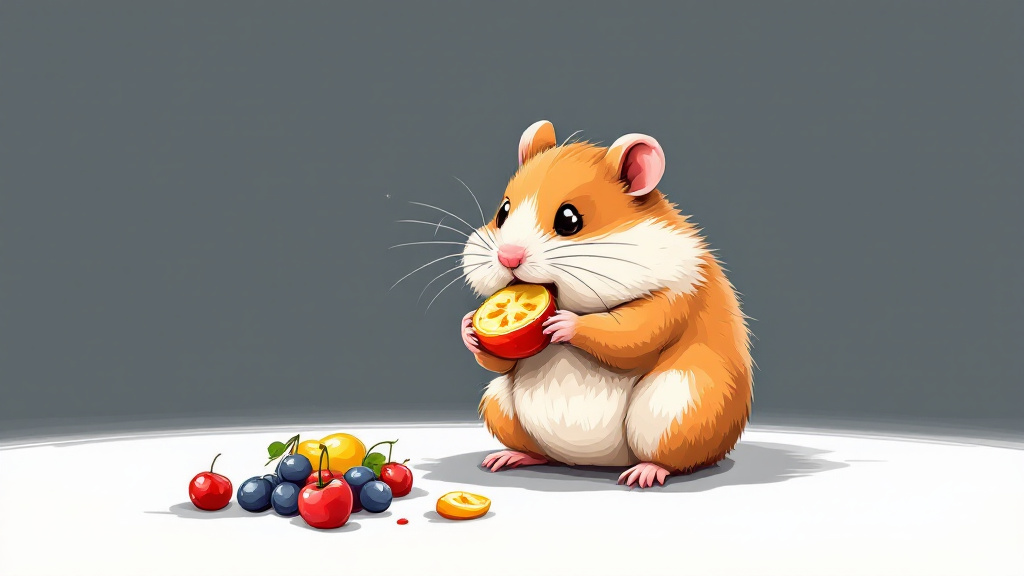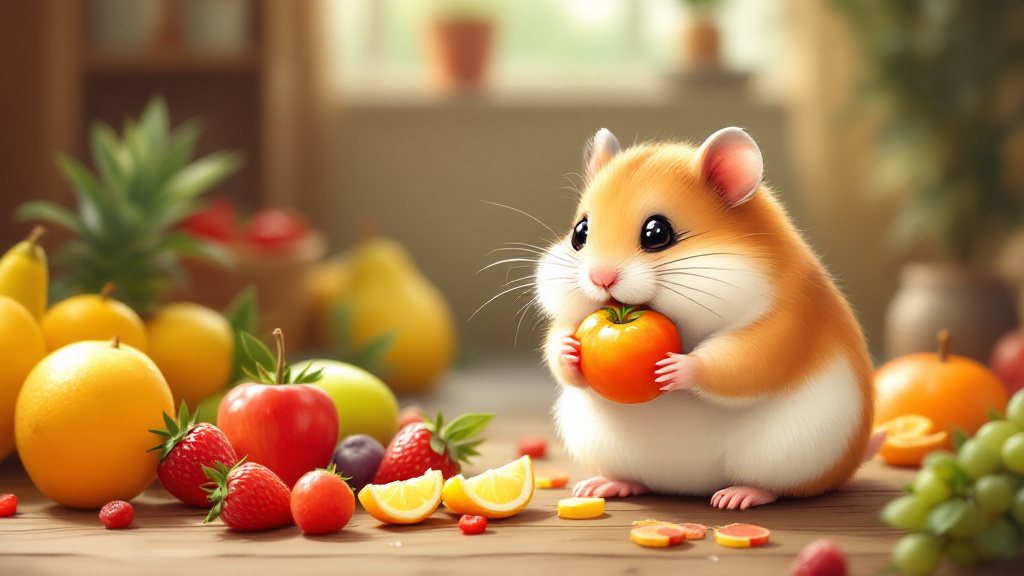Hamsters can enjoy fruits as a tasty addition to their diet, but it’s essential to offer them in moderation due to the high sugar content found in many varieties. While fruits provide vital nutrients, too much sugar can lead to obesity and other health issues. Selecting the right fruits and following proper feeding guidelines ensures that your hamster gets the nutritional benefits without the risks. This guide will help you choose the best fruits to safely incorporate into your hamster’s diet.
Best Fruits for Hamsters
Hamsters can benefit from a variety of fruits, but some are better suited for their small size and sensitive digestive systems. Below is a list of safe fruits that can be offered to your hamster, along with tips on how to prepare them.
Safe Fruits
- Apples: Apples are rich in fiber and vitamin C, making them a nutritious snack for hamsters. Be sure to remove the seeds and core, as these can be harmful.
- Bananas: Bananas are an excellent source of potassium, but they also contain a lot of sugar. Offer them in small slices to avoid overfeeding.
- Blueberries: These small berries are a great option for hamsters because they are lower in sugar than many other fruits and packed with antioxidants.
- Strawberries: Like blueberries, strawberries are full of antioxidants. Make sure to wash them thoroughly and cut them into small pieces before feeding.
- Raspberries: Similar to strawberries in nutritional value, raspberries are a healthy treat that can be given in moderation.
- Pears: Pears are hydrating and high in fiber, but always remove the seeds and core before offering them to your hamster.
- Peaches: Juicy and refreshing, peaches can be a delightful treat for your hamster, but make sure to remove the pit, which is toxic.
- Watermelon: Watermelon is a hydrating fruit that can be offered occasionally. Remove the rind and serve in small amounts to avoid too much sugar intake.
- Cantaloupe: Like watermelon, cantaloupe provides hydration but is high in sugar. Feed sparingly and always remove the rind.
- Cherries: While cherries are a sweet treat, they should be offered rarely and only after removing the pit, as it is a choking hazard.
Fruits to Avoid

While many fruits are safe for hamsters, some should be completely avoided due to their harmful effects on your pet’s health. Feeding the wrong types of fruit can lead to digestive issues, obesity, and even toxicity. Here are the fruits you should never offer your hamster.
Avoid These Fruits
- Citrus Fruits: Fruits like oranges, lemons, and limes are too acidic for hamsters. They can cause digestive upset, leading to discomfort and potential health problems.
- Grapes: Although not always harmful in small amounts, grapes can pose significant health risks for hamsters. They are high in sugar, which can contribute to obesity, and there have been concerns about their toxicity in some small animals.
- Dried Fruits: Dried fruits, such as raisins, have concentrated sugar levels that can easily lead to weight gain and increase the risk of diabetes. It’s best to avoid them entirely.
- Avocado: Avocados contain persin, a toxin that can be harmful to hamsters. Even a small amount can cause severe health issues, so it’s best to keep them out of your hamster’s diet.
Feeding Guidelines
When feeding fruits to your hamster, it’s important to follow specific guidelines to ensure their health and safety. Proper portion control, preparation, and observation are key to avoiding any negative effects.
Moderation is Key
Fruits should only make up about 5% of your hamster’s overall diet. Their primary diet should consist of high-quality hamster pellets and fresh vegetables, with fruits serving as occasional treats.
Introduce Fruits Gradually
When offering a new fruit, start with small amounts and observe your hamster’s reaction. Some may have sensitivities to certain fruits, so it’s essential to monitor for any digestive issues or allergic reactions.
Remove Uneaten Food
Any uneaten fruit should be removed from your hamster’s cage within a few hours. This helps prevent spoilage, which can lead to mold and bacteria growth, potentially harming your hamster.
Preparation Matters
Always wash fruits thoroughly to remove any pesticides or harmful chemicals. Cut the fruit into small, bite-sized pieces to reduce the risk of choking and ensure your hamster can safely enjoy their treat.
Conclusion
Fruits can be a nutritious and enjoyable addition to your hamster’s diet when offered wisely and in moderation. They provide essential vitamins, hydration, and fiber, making them a healthy treat. However, it’s important to remember that fruits should only complement their main diet of high-quality pellets and fresh vegetables. By selecting safe fruits, feeding them in small portions, and following proper guidelines, you can ensure your hamster stays healthy and happy. A balanced diet is key to supporting your hamster’s overall well-being while minimizing the risks associated with excessive sugar intake.

